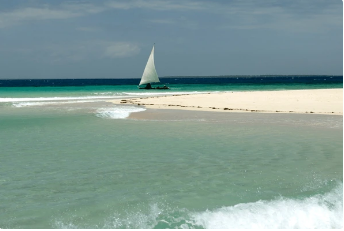Looking for an unforgettable adventure in Tanzania without breaking the bank? Join our group camping safari, departing twice a week—perfect for solo travelers, couples, or small groups who want to experience the magic of the wild while sharing costs and making new friends!👇
📍Five Nights & Six Days - Tarangire National Park - Lake Manyara - Serengeti & Ngorongoro Crater
25/06/2025: Tarangire National Park - Overnight Migombani Campsite
26/06/2025: Lake Manyara National Park - Overnight Migombani Campsite
27/06/2025: Serengeti National Park - Overnight Seronera Campsite
28/06/2025: Serengeti National Park - Overnight Seronera Campsite
29/06/2025: Serengeti National Park - Overnight Simba Campsite
30/06/2025: Ngorongoro Crater Tour - Return to Arusha. End of Tour
📍Four Nights & Five Days - Lake Manyara - Serengeti & Ngorongoro Crater
26/06/2025: Lake Manyara National Park - Overnight Migombani Campsite
27/06/2025: Serengeti National Park - Overnight Seronera Campsite
28/06/2025: Serengeti National Park - Overnight Seronera Campsite
29/06/2025: Serengeti National Park - Overnight Simba Campsite
30/06/2025: Ngorongoro Crater Tour - Return to Arusha. End of Tour
📍Two Nights & Three Days - Tarangire National Park - Ngorongoro Crater & Lake Manyara
01/07/2025: Tarangire National Park - Overnight Migombani Campsite
02/07/2025: Ngorongoro Crater Tour - Overnight at Migombani Campsite
03/07/2025: Lake Manyara National Park - Return to Arusha. End of Tour
📍Five Nights & Six Days - Tarangire National Park - Lake Manyara - Serengeti & Ngorongoro Crater
14/07/2025: Tarangire National Park - Overnight Migombani Campsite
15/07/2025: Lake Manyara National Park - Overnight Migombani Campsite
16/07/2025: Serengeti National Park - Overnight Seronera Campsite
17/07/2025: Serengeti National Park - Overnight Seronera Campsite
18/07/2025: Serengeti National Park - Overnight Simba Campsite
19/07/2025: Ngorongoro Crater Tour - Return to Arusha. End of Tour
📍Four Nights & Five Days - Lake Manyara - Serengeti & Ngorongoro Crater
15/07/2025: Lake Manyara National Park - Overnight Migombani Campsite
16/07/2025: Serengeti National Park - Overnight Seronera Campsite
17/07/2025: Serengeti National Park - Overnight Seronera Campsite
18/07/2025: Serengeti National Park - Overnight Simba Campsite
19/07/2025: Ngorongoro Crater Tour - Return to Arusha. End of Tour
📍Three Nights & Four Days - Serengeti National Park & Ngorongoro Crater
16/07/2025: Serengeti National Park - Overnight Seronera Campsite
17/07/2025: Serengeti National Park - Overnight Seronera Campsite
18/07/2025: Serengeti National Park - Overnight Simba Campsite
19/07/2025: Ngorongoro Crater Tour - Return to Arusha. End of Tour
📍Four Nights & Five Days - Tarangire - Lake Manyara - Serengeti & Ngorongoro Crater
26/06/2025: Tarangire National Park - Overnight Migombani Campsite
27/06/2025: Serengeti National Park - Overnight Seronera Campsite
28/06/2025: Serengeti National Park - Overnight Simba Campsite
29/06/2025: Ngorongoro Crater Tour - Overnight at Migombani Campsite
30/06/2025: Lake Manyara National Park - Return to Arusha. End of Tour
🗓️ Scheduled Departures: Every Tuesday and Friday
✨ What’s Included?
-
All park fees and game drives
-
Professional English-speaking guide
-
All camping gear & meals
-
4x4 safari vehicle with a pop-up roof
-
Shared experience with fellow adventurers!
💬 Whether you're a solo backpacker or a duo looking for an affordable way to witness the Big Five, this is your perfect safari option.






